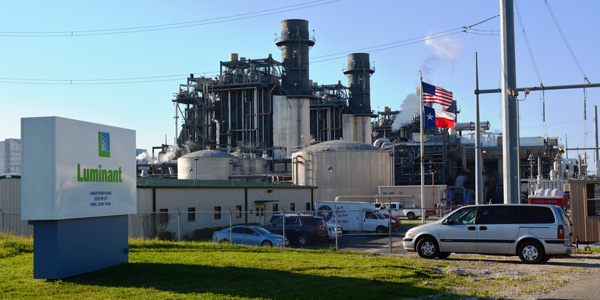Energy Future Holdings' attempt to emerge from bankruptcy may be hampered by a ruling that it must pay hundreds of millions of dollars to bondholders.
By Tom Kleckner
A U.S. appeals court last week ruled Energy Future Holdings must pay hundreds of millions of dollars to certain bondholders, adding a cloud of uncertainty to the bankrupt company’s attempts to emerge from Chapter 11 protection.

Lamar Plant | Luminant
On Thursday, the 3rd Circuit Court of Appeals in Philadelphia reversed lower court decisions and directed EFH to pay holders of the company’s first-lien and second-lien notes. The bondholders had argued that by repaying its debt early in the bankruptcy proceeding, EFH owed them prepayment premiums — or make-whole payments — of $431 million and $351 million, respectively. The payments don’t include several years of interest.
The decision affects $6.2 billion in debts that were refinanced after EFH declared bankruptcy in 2014. The company has said that disallowing the make-whole claims is a condition of its reorganization and that the added litigation would reduce the funds available to other creditors.
The U.S. Bankruptcy Court in Delaware, which has jurisdiction over the case, is to begin hearings to consider confirming the Texas company’s reorganization Dec. 1.
EFH’s reorganization plan hinges partly on the sale of its Oncor wires business to Florida-based NextEra Energy for $18.4 billion. NextEra and Oncor filed for approval of the sale with the Public Utility Commission of Texas on Oct. 31. (See NextEra Energy Talks Up its Oncor Acquisition.)
It’s unclear whether the additional debt would affect NextEra’s acquisition of Oncor, which relies on eliminating debt and replacing it with equity.
EFH has already spun off its Luminant and TXU Energy businesses into a standalone company, since rebranded as Vistra Energy. (See Luminant, TXU Energy Emerge from Bankruptcy.)
Vistra Energy and NextEra both declined requests for comment by RTO Insider on the court’s ruling and its potential effect on the Oncor acquisition.
Meanwhile, NextEra and Oncor are plunging ahead with their merger application in Texas.
Friday, the state’s Public Utility Commission filed an order finding their application to be sufficient (Docket 46238) and an administrative law judge affirmed hearings before the PUC will begin Feb. 21.
The ALJ also granted all motions to intervene in the case. Those intervening include the Texas Office of Public Utility Counsel, NRG Texas, TXU Energy, Local 69 of the International Brotherhood of Electrical Workers, Texas Industrial Energy Consumers and a group of cities currently served by Oncor.
PUC staff has requested Oncor address a set of questions focused on the utility’s rating agency reports, its five-year capital plan and the tax status of the EFH spin-off.




